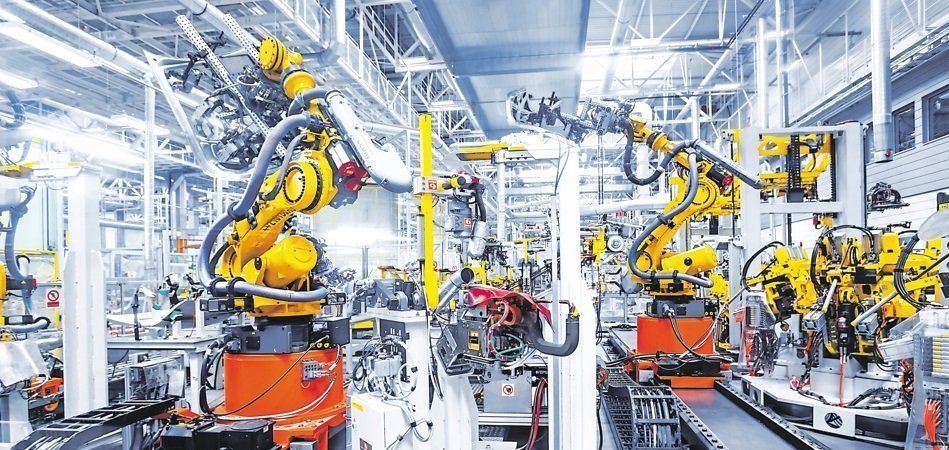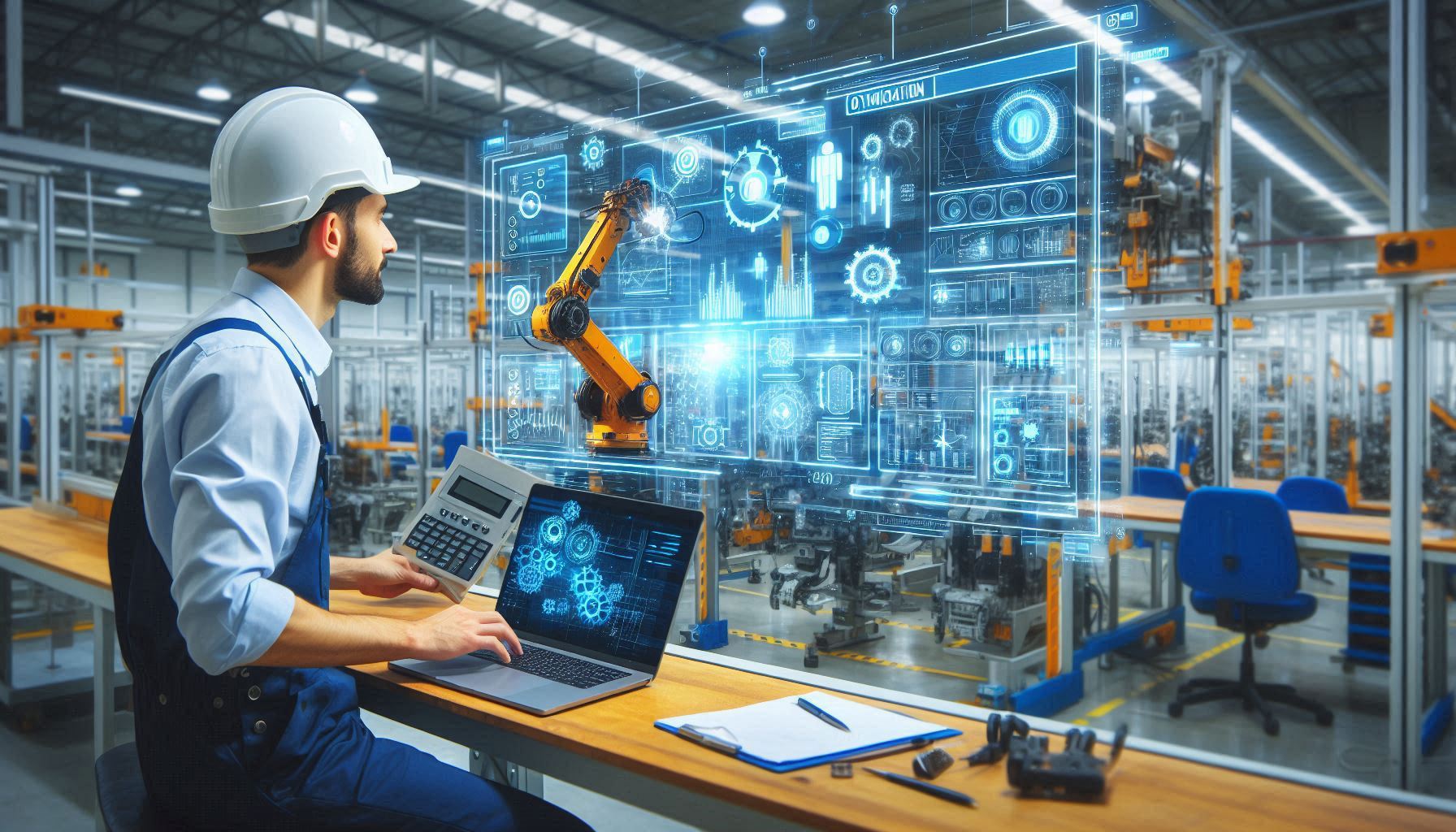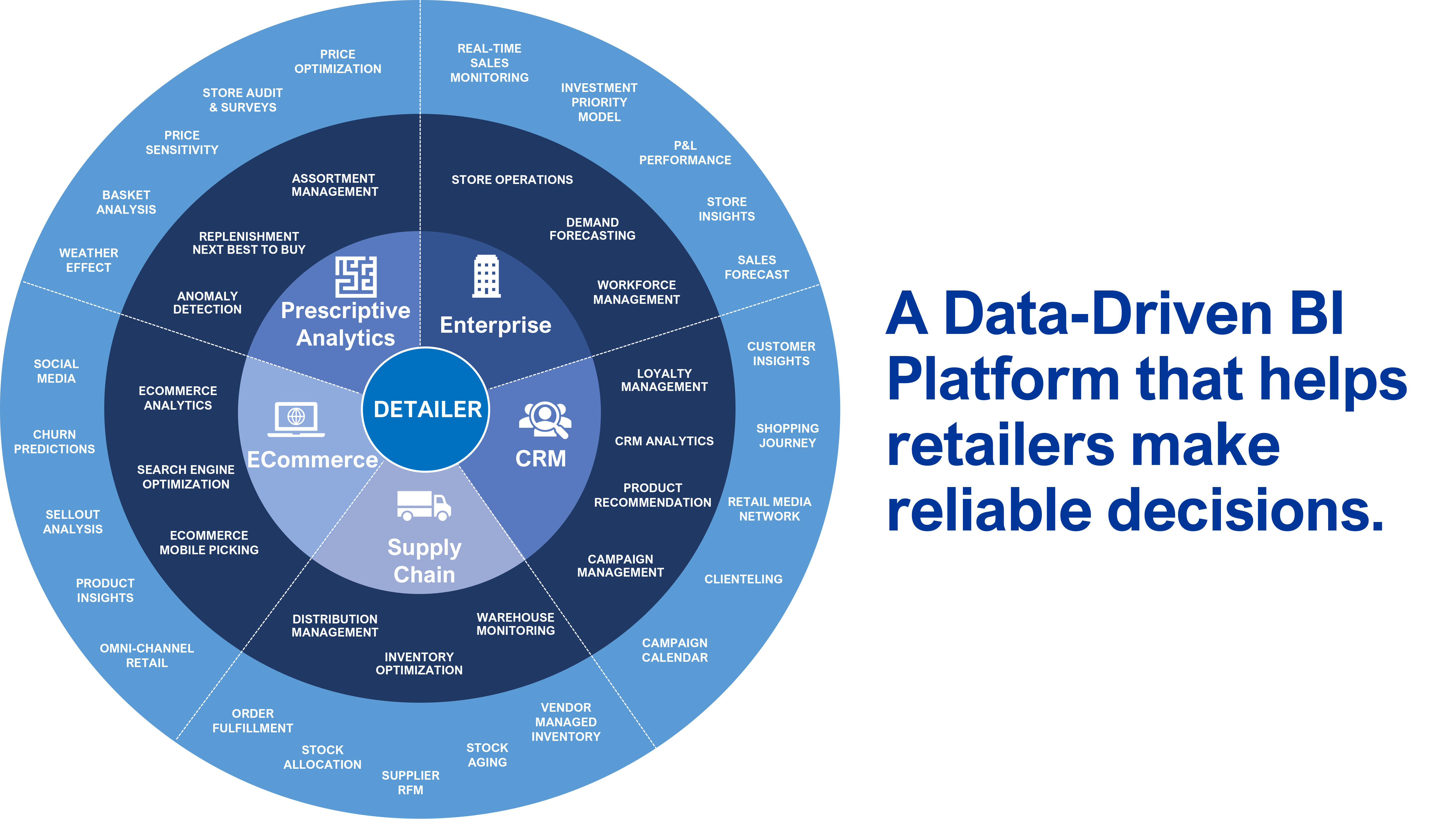Artificial Intelligence (AI) is revolutionising industries across the globe. In 2025, companies are increasingly adopting AI tools to optimise operations, reduce costs, and improve customer experiences. From manufacturing and logistics to energy and agriculture, AI is enabling smarter decision-making and driving unprecedented efficiency.

AI in Manufacturing
In manufacturing, AI-powered robotics, predictive maintenance, and quality control are reshaping production lines:
- Robotic automation handles repetitive tasks, increasing speed and precision.
- Predictive maintenance analyses machine data to prevent breakdowns and reduce downtime.
- AI quality control uses computer vision to detect defects that human inspectors might miss.
These innovations result in higher efficiency, reduced waste, and lower operational costs.

AI in Logistics and Supply Chain
AI optimises logistics by forecasting demand, planning routes, and managing inventory:
- Smart route planning reduces delivery times and fuel consumption.
- Inventory management systems use AI to predict stock requirements and minimise shortages or overstocking.
- Warehouse automation improves order accuracy and processing speed.
Companies using AI in logistics achieve faster deliveries, cost savings, and better customer satisfaction.

AI in Energy and Utilities
AI is transforming the energy sector by enhancing efficiency and sustainability:
- Smart grids optimise energy distribution based on demand patterns.
- Predictive analytics helps anticipate equipment failures in power plants.
- AI in renewable energy forecasts solar and wind production, improving reliability.
These applications reduce operational costs and promote greener energy solutions.

AI in Agriculture
AI enables precision farming, increasing yields while reducing waste:
- Crop monitoring drones identify pest infestations or nutrient deficiencies.
- AI soil analysis recommends optimal planting and fertilisation strategies.
- Predictive analytics forecasts harvest times and crop yields accurately.
Farmers can now make data-driven decisions that improve productivity and sustainability.

AI in Healthcare and Pharmaceuticals
Beyond patient care, AI is influencing industrial-scale healthcare production:
- Drug discovery is accelerated using AI models that predict molecular interactions.
- Medical device manufacturing leverages AI for quality assurance.
- Supply chain management ensures timely distribution of essential medicines.
AI helps the healthcare industry meet global demand efficiently and safely.
AI in Retail and Customer Experience
Retailers are using AI to enhance customer engagement and operational efficiency:
- Recommendation engines personalise product suggestions.
- Inventory optimisation ensures popular items are always in stock.
- AI chatbots improve customer support by providing instant responses.
Retailers that adopt AI can reduce costs while increasing customer satisfaction and loyalty.

Ethical and Operational Challenges
AI adoption in industry comes with challenges:
- Data privacy: Collecting and analysing customer or operational data must comply with regulations.
- Workforce adaptation: Employees need training to collaborate effectively with AI systems.
- Algorithmic bias: AI decisions must be regularly audited to avoid unfair outcomes.
Responsible deployment is critical to maximising AI benefits while minimising risks.
Conclusion
In 2025, AI is a powerful force driving innovation across industries. From manufacturing and logistics to energy, agriculture, healthcare, and retail, AI enhances productivity, reduces costs, and improves decision-making.
Businesses that embrace AI responsibly gain a competitive advantage, while those that delay adoption risk falling behind.
At Tamfis AI Store, we provide AI tools, modules, and prompt bundles tailored for industrial applications. Explore our marketplace to implement AI solutions that improve efficiency, drive innovation, and deliver measurable results.


